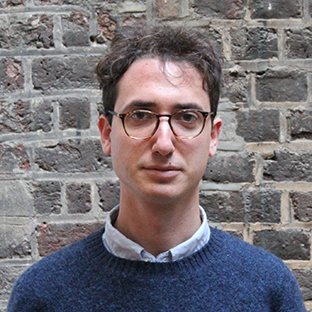Teachers and theatre practitioners come together to enrich and enliven English teaching, as part of the RSA Academies’ Performing Arts Hub’s new project: Performing Pedagogy.
One week after starting my internship in the Creative Learning and Development team of the RSA’s Action & Research Centre, I hopped on a train to Birmingham to reach my new boss, Mark Londesborough, at the beautiful mac arts centre. Dipping my feet into the warm waters of English state-funded education, I was to assist Mark in the delivery of an event for a new Performing Arts Hub initiative called Performing Pedagogy.
Delivered with the support of Arts Connect, Birmingham City University and Birmingham Rep, Performing Pedagogy is one of 7 new projects funded as part of the Paul Hamlyn Foundation’s new Teacher Development Fund. It aims to build bridges between theatre and drama practitioners and teachers, exploring the educational benefits of using drama techniques in the classroom at Key Stage 2.
Through the project, 38 teachers from 10 schools in the West Midlands will come together for workshops and will teach together with drama practitioners in classrooms, swapping skills and pushing the boundaries of their respective professional practices.
In the workshop, teachers were excited by the possibilities being demonstrated by the practitioners, relating techniques they were learning to the challenges they face on a daily basis and recognizing the value they could have. At the same time, some were daunted by the idea of changing their habits and trying new approaches in the classroom. A recurring theme in the discussion was that high-stakes accountability can represent a barrier to the risk-taking necessary for testing new ways of teaching.
The idea that creative teaching and a creative education come at the expense of measureable attainment is something we want to challenge with this project: In the case of drama-based English teaching, if education can be results-driven while also being creative and engaging for teachers and students, everyone is a winner.
The teaching methods explored were undeniably impressive. In one exercise, the story of Little Red Riding Hood came to life as an immersive theatre piece, guided by a narrator and performed by the participants, on the spot, with no preparation. The exercise was interactive and exciting, suggesting a potential to boost students’ engagement with English, for teachers to model creativity as well as to invite creative responses from pupils.
Though there is evidence supporting the use of drama in the classroom to boost literacy, teachers reported using drama-based teaching infrequently. This project could provide insight into why this is the case: how much it is affected by a deficit in opportunities for teacher development and experimentation with new professional practices, or the level of support in their schools for using the arts in the classroom.
Whether caused by chronic risk-aversion brought out by the accountability system, or other issues such as teacher fatigue, teaching habits seem hard to change. Discussions during the workshop highlighted time and institutional support being necessary requisites for the development of teaching practices.
The Performing Pedagogies project, steered by research on effective continuing professional development (CPD) takes this into account. Drama practitioners will be working with teachers over 6 months, providing them with adequate support and expertise needed to test and evaluate new approaches in the classroom. Teachers will also be guided through a lesson-study process, to help reflect on the impacts the changes are having on pupils.
As the session ended and the room we had transfigured through theatre went back to being just a room, teachers were visibly excited by the journey they were embarking on.
If education is to be the rich and inspiring experience we wish it to be, it is incredibly important to maintain and foster opportunities for experimentation in the classroom. The Performing Pedagogy project provides a space where teachers have the support to take risks, enabling them to provide students with the exciting education they deserve.
Performing Pedagogy is just one of the many projects carried out through the RSA Academies’ Performing Arts Hub across the West Midlands.
Find out more about RSA Academies' Performing Arts Hub or write to Marcello.Newman@rsa.org.uk for any enquiry.

Join the discussion
Comments
Please login to post a comment or reply
Don't have an account? Click here to register.
You may also be interested in the D4LC (Drama for Learning and Creativity' school improvement initiative, that Norfolk County Council and National Drama set up in partnership from 2005-2011. It was externally evaluated by Dr. David Simpson from Brighton University and involved teachers in action research. The schools chose their school improvement focus and gathered evidence of the impact of Drama on standards. Many of the schools involved, chose writing. Also there is a Drama for Thought, Talk and Writing initiative in East Anglia (since 2013).